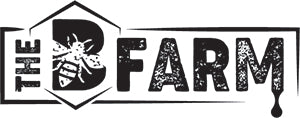Many hobbies come with rules, terms, and methods to learn, and beekeeping is no exception. There’s nothing worse than feeling lost during beekeeping club meets or courses, but understanding a few beginner terms can help you get a headstart. Whether it’s the beginning of your beekeeping journey or you’re just looking to learn more, you can benefit from a glossary of beekeeping terms you should know.
Apiary
An apiary is also known as a bee yard. Beekeepers use this term to describe the area where they keep their bee hives, no matter the size of the space. Whether you’re talking about a half-acre or a 10-foot area, you can use this term to describe your colony’s space.
Brood
The queen lays eggs in the brood chamber—the area of the hive where worker bees raise new bees—and these eggs hatch into larvae over time. We refer to bees still occupying a wax cell before growing into independent adult bees as the brood.
Drone
Drones are male honey bees. They’re larger than their female counterparts, and their main purpose in life is to mate with virgin queen bees. Drones don’t have a stinger, and they can’t feed themselves; female workers feed them. Once fall comes, the workers kick the drones out of the hive to starve, as they’re no longer needed. When spring comes, the worker bees raise new drones to prepare for mating flights with new queens.
Nuc or Nucleus Hive
A nuc or nucleus hive is a smaller bee hive; it’s a common choice for a starter colony until it grows into a larger hive. A nuc usually contains two to five frames. When you purchase VSH queen bees and workers, they’ll most likely come in a nuc.
Proboscis
A proboscis is another word to describe a bee’s tongue. Because worker bees need to forage for nectar and water, their straw-like tongue extends to reach into flowers and other small areas.
Swarm
A swarm is a natural process in which bee colonies reproduce. Typically, the queen and about half of the worker bees leave their hive and gather somewhere safe until they can find a suitable place to build their new home. Despite popular belief, bee swarms aren’t aggressive; in fact, bees are most vulnerable during this transition.
Now that you have a glossary of beekeeping terms, you’re ready to begin your journey. Although this is nowhere near an exhaustive list, these are a few key terms to add to your bee knowledge bank. You learn beekeeping as you go—this is one hobby where you can’t learn everything all at once and expect to be an expert.
